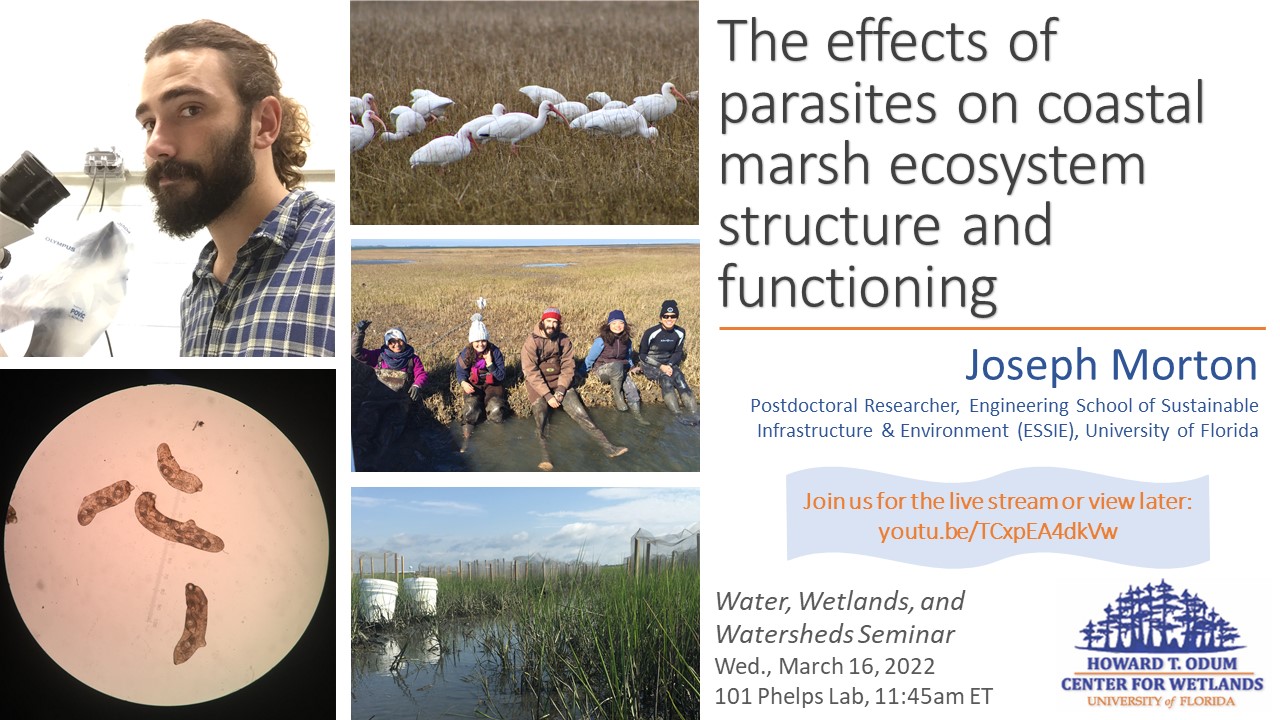The effects of parasites on coastal marsh ecosystem structure and functioning
Joe Morton, Postdoctoral Researcher, Environmental Engineering Sciences, ESSIE, UF
Join us for the live stream March 16, 11:45am EST: youtu.be/TCxpEA4dkVw
(Please visit our youtube channel main page for the stream if there are any issues with the direct link.)
ABSTRACT
It has long been recognized that consumers can control populations, communities and even whole ecosystems. While parasitism represents the most common consumer strategy on the planet and a sizable body of research has demonstrated the ability of infectious agents to powerfully control host population densities and modify host phenotypes, the ramifications of these impacts on species diversity and functioning in ecosystems has only recently been examined. There is an emerging notion of parasites as drivers of community structure and dynamics, not merely as organisms whose dynamics are dictated by community structure. Here, I present a decade’s worth of research on how tiny behavior-altering parasites can fundamentally change the organization and stability of Southern US salt marshes.
Bio
Joe Morton is a postdoctoral researcher at UF in the Engineering School of Sustainable Infrastructure & Environment. He received his BA and MS degrees from UNC Chapel Hill and a PhD from Duke University. His research has largely focused on how parasites indirectly influence ecosystems by altering the behavior of their host species.
POSTCARD

